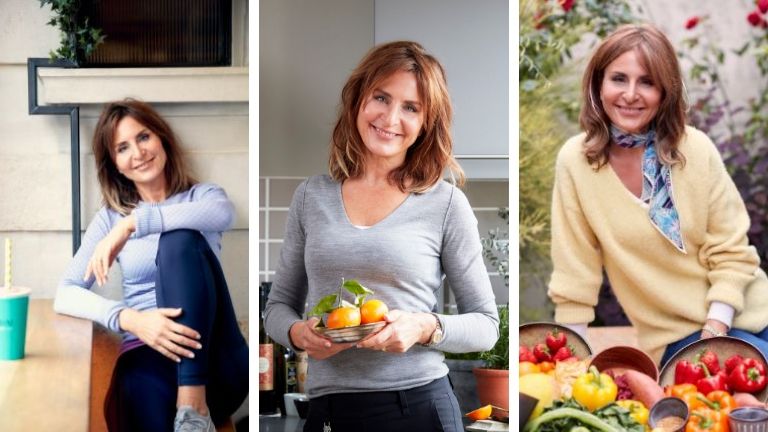Science writer Maria Borelius is 58 but barely looks 45. After spending six years researching anti-aging these are the secrets she has uncovered
At the age of 52 I was feeling miserable. With a bad backache, a gloomy mood and a magnificent muffin top, I felt life was going downhill. But through a series of miraculous coincidences I stumbled into a new lifestyle, the anti-inflammatory lifestyle, which at that point had no name but just consisted of some very pioneering science.
After two months on the new programme the backache was gone, and I felt stronger, happier and younger than I had for 20 years. At first my only thought was an unreflective ‘this was a good programme’. I decided to leave it at that and continued following my new lifestyle without giving it further thought.
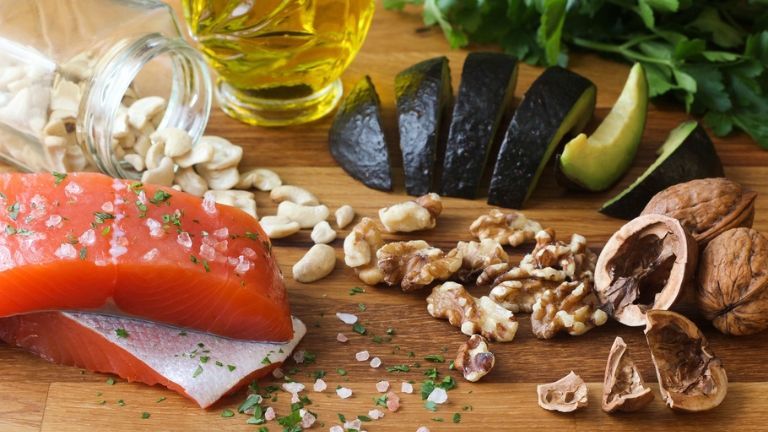
But some months later I went to a meeting at the Lund University advisory board. At this meeting a professor of nutritional sciences gave a talk about pioneering new research around something she called “anti-inflammatory foods” which had the propensity in a small trial group of 44 people in the south of Sweden, to cut the risk factors for several silent killers in the Western world, such as metabolic syndrome.
These foods, eaten in under four weeks, could even increase cognitive abilities. I listened politely and took notice in a professional manner. But when the professor showed us a list of the foods the people in the trial had eaten I almost fell off my chair.
These foods – low gluten, no sugars, low GI, high in nuts and oily fish, berries and leafy greens, with probiotics added – were identical to the way I had eaten. As a science journalist, I decided to embark on a personal quest for a deeper understanding.
For the last six years I have been travelling the world, meeting new thinking scientists, cutting edge fitness professionals and also some ancient gurus, looking deeper into how inflammation plays havoc with our health and is a leading cause of ageing.
After 2 months on the new programme the backache was gone, and I felt stronger, happier and younger than I had for 20 years
Inflammation exists in two shapes. The acute is a beneficial response to tissue damage or infections, and means the body is healing itself. The low degree systemic inflammation however is caused by stress, bad diet, and environmental damage, yes, age itself and does not subside but rather lingers in the system.
This type of inflammation is linked to higher incidences of several of our most prevalent diseases in the West such as Type 2 diabetes, cardiovascular disease, depression, Alzheimer’s, obesity, joint pain, IBS, skin conditions, and even wrinkles and aging itself, which some doctors will claim is 90% due to inflammation.
I have also had the privilege of spending time in two of the world’s Blue Zones, where more people than expected live to be 100. On my quest for understanding I travelled to Okinawa, southeast of Japan in the Pacific, and to Loma Linda, where a 7th Day Adventist colony resides just outside of Los Angeles.
In these Blue Zones I met people who still work the fields at the age of 100, start businesses at the age of 80 and become the local community leaders at the age of 85, tending their gardens or going to the local aqua aerobics with bouncy steps.
I met people who still work the fields at 100, start businesses at 80 and become local community leaders at 85
Happy, non-stressed, soft-skinned oldies, standing tall, cooking heartily and walking fast. These encounters has made me totally re-evaluate what old age can look like.
I have discussed the extraordinary vitality of these populations with the scientists who are leading the epidemiological and medical evaluations of these communities.
In Okinawa, Professor Makoto Suzuki, leader of the Okinawa Research Centre for Longevity Science, and in Loma Linda, Professor Gary Fraser, at the Adventists Health Study 2 at Loma Linda University. Both remarkably young looking men, living the lifestyle whilst also studying the secrets to longevity. (Professor Suzuki being 85 years old, still active as a doctor, researcher and farming his oranges at his farm up north of the island!).
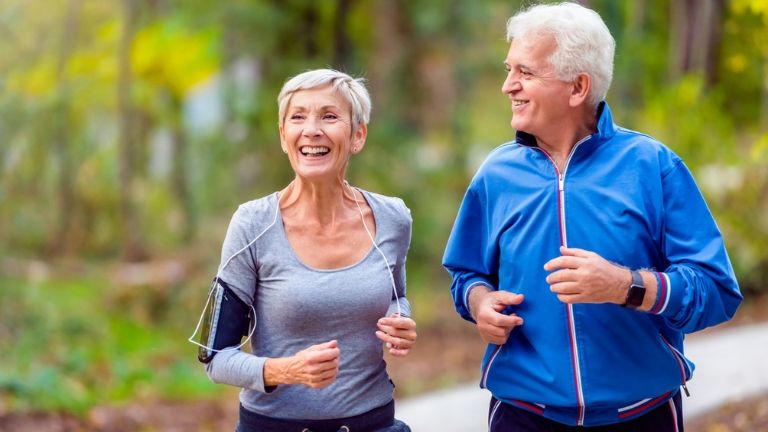
In these Blue Zones people die of the same diseases that other people in the Western world do – but 5 to 7 years later in life. So something in the Okinawan and 7th Day Adventists lifestyle seems to “push” ageing and degeneration further in life.
Recently a very large study of 70,000 people during 16 years in Sweden, under principal investigator Alicja Wolk from the Karolinska Institute, show that a higher degree of anti-inflammatory foods can be linked to longer lifespan.
Talking to these extremely vital oldies at Loma Linda and in Okinawa, and discussing with many scientists behind the scenes, I consider these four tips to be vital:
1. Embrace a healthy food culture
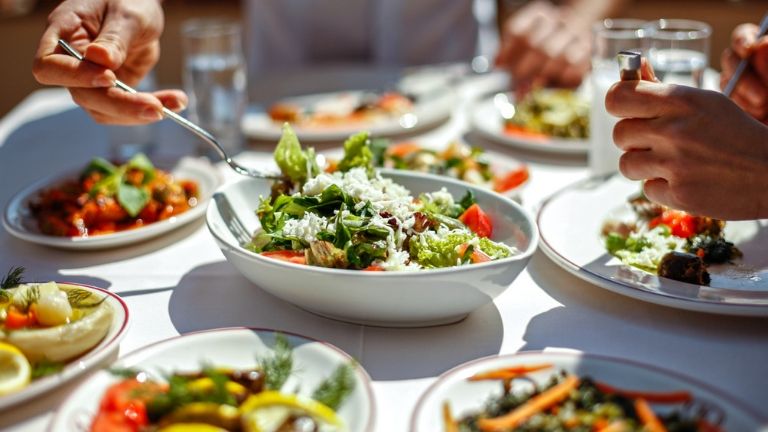
This means eating more colourful veggies, more probiotic foods and more omega 3 rich foods such as nuts or seafood. It also means eating less sugar, gluten and trans fats. Another observation is that the healthy foods serve us best well digested and absorbed.
This is where the ritual of food comes in. Lovingly cooking food, setting a proper table, sitting down, chewing well is equally important. Concrete tip: try to cook one proper healthy meal a day with a proper sit-down and mindful eating.
2. Move, move, move
Research at Copenhagen Hospital shows how aerobic exercise actually lowers inflammatory markers. Japanese research has shown that a combination of aerobic and muscular work also lowers inflammation. Concrete tip: Exercise every day, even if it is only a rapid walk. Each bout of exercise helps.
3. Sit with stillness
Whether it is the Okinawan tradition of asking for “peace in my heart” in front of your ancestor’s altar, or the 7th Day Adventists tradition of Saturday nature hikes, embracing regular breaks cuts the stress hormone cortisol which can deregulate the immune system.
What this means for a modern person? Daily short pauses with deep breathing, thankfulness lists, yoga, and mindfulness. And a good night’s sleep. Concrete tip: Try being in bed no later than 10.30 pm, to enjoy the cortisol dip at 11 pm. Add a small late afternoon rest of 5-10 min of meditation, deep breathing, yoga.

4. Enjoy your awe
Strong positive emotions like awe can actually lower inflammatory markers in saliva, research from Toronto University psychologist Jennifer Stellar shows. Whether you spend time in beautiful nature, with awe inspiring music, great art or if you are doing things in your community for others, or being spiritual or doing charitable deeds- you can be healing yourself.
A sense of offering yourself for the greater good can thus lower inflammatory markers. Concrete tip: Make a playlist that gives you some proper goose bumps. Spend time every day in nature, with that music in your ears. Do something for the greater good, whether at a charity, church, temple or event once a week.
Food swaps:
- Change normal bread into rice cakes or sourdough, as they contain lower amounts of gluten.
- Change mangoes and bananas into berries and apples, as they have lower sugar content.
- Change industrial cookies into a pear and some nuts, to get rid of trans fats.
- Change “all fruit smoothies” into smoothies with nut milks, nuts, berries and vegan protein powder, to lower the glycaemic index.
- Change proportions on your plate, from small amounts of veggies, to half a plate full of veggies to increase the amount of antioxidants.
- Change from normal butter to organic butter, as the organic butter contains more omega 3.
- Change from a morning juice and toast brekkie to eggs and sautéed veggies brekkie, to lower the glycaemic index, lower gluten and increase antioxidants and proteins.
- Change from milk and cereal to full fat Greek yoghurt with nuts and berries, for a breakfast with a lower glycaemic index and higher nutritional content.
- Change from beer to Kombucha (probiotics), fermented Kefir water or sometimes Pinot Noir red wine, to increase polyphenol content. But in moderation.
- Change from not eating fermented foods to making them your best friend. An egg cup a day of sauerkraut – why not?
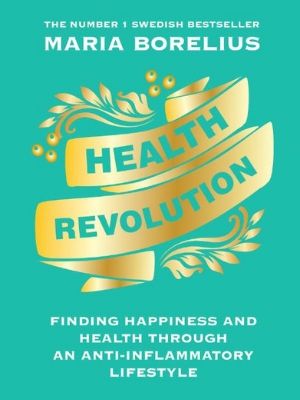
She is a columnist and founder of the Ester Foundation, which supports marginalised immigrant women to start businesses.
She also works as a communications advisor to scientific institutions, pharmaceutical and tech companies globally. Maria has previously held the post of Minister of Commerce in Sweden and CEO of the Global Microfinance Organization Hand in Hand International.
Her new book, Health Revolution, HQ, is available on Amazon.
More Healthista Content:
10 minute guided meditation to help you build trust in yourself
5 steps to a long life (and 2 routes to a shorter one)
3 healthy recipes using CBD oil – yes CBD oil
5 natural fixes for joint pain proven by science
Everyone’s talking about Manuka honey…but why is it so expensive?
Like this article? Sign up to our newsletter to get more articles like this delivered straight to your inbox.



